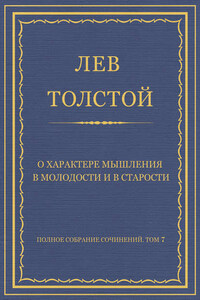CHAPTER I
INTRODUCING MR. HOPKINS TOPPLETON
Mr. Hopkins Toppleton, Barrister of London and New York, was considered by his intimates a most fortunate young man. He was accounted the happy possessor of an income of something over fifty thousand dollars a year, derived from investments which time had shown to be as far removed from instability, and as little influenced by the fluctuations of the stock market, as the pyramids of Egypt themselves. Better than this, however, better even than personal beauty, with which he was plentifully endowed, Mr. Hopkins Toppleton was blessed with a great name, which he had received ready-made from his illustrious father, late head of the legal firm of Toppleton, Morley, Harkins, Perkins, Mawson, Bronson, Smithers and Hicks. The value of the name to Hopkins was unquestionable, since it enabled him, at his father's death, to enter that famous aggregation of legal talent as a special partner, although his knowledge of law was scant, receiving a share of the profits of the concern for the use of his patronymic, which, owing to his father's pre-eminent success at the Bar, Messrs. Morley, Harkins, et al., were anxious to retain. This desire of Mr. Toppleton's late associates was most natural, for such was the tremendous force exerted by the name he bore, that plaintiffs when they perceived it arrayed in opposition to their claims, not infrequently withdrew their suits, or offered terms upon which any defendant of sense might be induced to compromise. On the other hand, when a defendant found himself confronted with the fact that Hopkins Toppleton, Sen., had joined forces with the plaintiff, he usually either settled the claim against him in full or placed himself beyond the jurisdiction of the courts.
When Toppleton, Sen., died, it was very generally believed that the firm, whose name has already been mentioned at some length, lost not only its head, but also a very large proportion of its brains, – a situation quite as logical as it was unfortunate for the gentlemen with whom Mr. Toppleton had been associated. Nor was this feeling, that with the departure of Toppleton, the illustrious, for other worlds the firm was deprived of a most considerable portion of its claims to high standing, confined to cavilling outsiders. No one recognized the unhappy state of affairs at the busy office on Broadway more quickly than did Messrs. Morley, Harkins, Perkins, Mawson, Bronson, Smithers, and Hicks themselves, and at the first meeting of the firm, after the funeral of their dead partner, these gentlemen unanimously resolved that something must be done.
It was at this meeting that Mr. Hicks suggested that the only course left for the bereaved firm to pursue, if it desired to remain an aggressive force in its chosen profession, was to retain the name of Toppleton at the mast-head, and, as Mr. Mawson put it, "to bluff it out." Mr. Perkins agreed with Mr. Hicks, and suggested that the only honest way to do this was to induce Mr. Toppleton's only son, known to all – even to the clerks in the office – as Hoppy, to enter the firm as a full partner.
"I do not think," Mr. Perkins said, "that it is quite proper for us to assume a virtue that we do not possess, and while Hoppy – I should say Hopkins – has never studied law, I think he could be induced to do so, in which event he could be taken in here, and we should have a perfectly equitable claim to all the business which the name of Toppleton would certainly bring to us."
"I am afraid," Mr. Bronson put in at this point, "I am very much afraid that such a course would require the entire reorganization of the firm's machinery. It would never do for the member whose name stands at the head of our partnership designation, to be on such terms of intimacy with the office boys, for instance, as to permit of his being addressed by them as Hoppy; nor would it conduce toward good discipline, I am convinced, for the nominal head of the concern to be engaged in making pools on baseball games with our book-keepers and clerks, which, during his lamented father's life, I understand was one of the lad's most cherished customs. Now, while I agree with my friend Perkins that it is desirable that the firm should have an unassailable basis for its retention of the name of Toppleton, I do not agree with him that young Hopkins should be taken in here if we are to retain our present highly efficient force of subordinates. They would be utterly demoralized in less than a month."
"But what do you suggest as an alternative?" inquired Mr. Morley.
"I believe that we should make Hopkins a special partner in the firm, and have him travel abroad for his health," returned Mr. Bronson after a moment's reflection.
"I regret to say," objected Mr. Hicks, "that Hoppy's health is distressingly good. Your point in regard to the probable demoralization of our office force, however, is well taken. Hopkins must go abroad if he becomes one of us; but I suggest that instead of sending him for his health, we establish a London branch office, and put him in charge on a salary of, say, 10,000 dollars. We have no business interests outside of this country, so that such a course, in view of his absolute ignorance of law, would be perfectly safe, and we could give Hoppy to understand in the event of his acceptance of our proposition that he shall be free to take a vacation whenever he pleases, for as long a period of time as he pleases, and the oftener the better."














